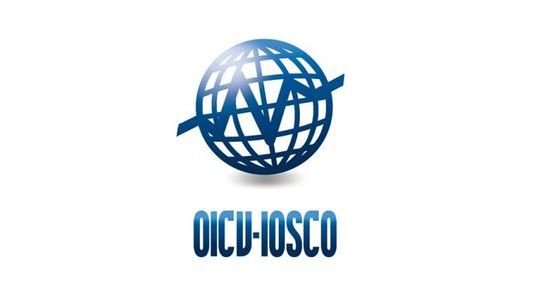HLEG on Sustainable Finance’s recommendations for asset managers
Published: 27 February 2018
The High Level Expert Group on sustainable finance has issued its final report setting out a broad set of ESG-related recommendations to the European Commission in relation to many financial services stakeholders, including, but not limited to, asset managers and institutional investors (the “HLEG Report”). The purpose of the report was to identity ways to “improve the contribution of the financial system to sustainable and inclusive growth”, while strengthening financial stability by incorporating ESG factors into investment decision-making. The HLEG report has identified nine priorities, including the creation of a European taxonomy for sustainable investments and the clarification of investors ESG duties. Overall, a comprehensive approach is recommended, impacting all financial institutions, their governance, risk management and supervision.
The HLEG Report specific recommendations for asset managers are discussed further below.
Next steps
The European Commission is expected to publish its action plan in the beginning of March, which should include a legislative proposal regarding the clarification of investors and asset managers’ duties in relation to sustainability. At this time we do not anticipate that prescriptive requirements on investment decisions will be included in the legislation, but rather requirements for asset managers to pro-actively consider investors’ desires in terms of sustainability, and to reflect these preferences across the investment chain and notably in the areas of governance and risk management.
If you are interested in participating in AIMA’s advocacy work around ESG matters please contact Marie-Adelaide de Nicolay.
HLEG on Sustainable Finance’s Recommendations for Asset Managers
The HLEG Report contains a large number of specific recommendations regarding how asset managers should be required to act in order to advance sustainable finance objectives. We have summarised these below and the assertions set out there reflect the conclusions of the HLEG Report rather than any commentary or conclusions from AIMA.
Clarifying fiduciary duties by seeking to understand sustainability requirements from investors.
According to the HLEG Report,
- Asset managers need to pro-actively ask their clients about their sustainability priorities and timeframe that the investment mandate or fund is being designed to serve. To ensure these preferences are properly reflected, asset managers should also seek informed consent from their clients on the strategy that they adopt for them. Under UCITS and AIFMD, this obligation would include consideration of the interests of all investors who are clients of the scheme. For retail clients, this should include the wider interests and ethical preferences on sustainability that the individual would wish to have taken into account. This should form part of ‘know your client’ assessments and the consideration of suitability required by MiFID II.
- Asset managers should therefore ensure that they have a sound understanding of the broad range of interests and preferences of their clients, including ESG factors, and that they provide clear information to their clients about the potential benefits and risks, including the effect on the prospective return of the investment strategy. The asset manager should also ensure that the asset owner understands the potential risks and benefits of incorporating sustainability issues into the investment strategy, ensuring two-way consideration and integration of ESG factors. The investment mandate or fund itself would in turn require sustainability risk and opportunity assessments consistent with the investment horizon of the client, or the institutional client’s obligation to their beneficiaries.
- Asset owners and investment intermediaries should disclose their investment approach to clients and/or beneficiaries in a clear and understandable manner, including how preferences are incorporated into the scheme’s investment strategy and the potential risks and benefits of doing so.
Governance: align corporate culture in the financial sector with a long-term outlook.
With respect to governance, the HLEG Report states that the exercise of stewardship responsibilities is a key expression of investor duties to integrate material ESG risks into their investment process. The HLEG Report recommends adoption of minimum stewardship standards for investment mandates covering all asset classes and applicable to all institutions in the investment chain that act on behalf of others.
The HLEG Report also recommends updating the ‘fit and proper’ tests related to governing bodies in financial institutions to include an assessment of the individual and collective ability to address sustainability risks, to understand the broader stakeholder context and to take account of clients’ sustainability preferences.
Supervisory manuals should be updated to include sustainability as a risk against which the skills and competences of the members of the governing bodies of companies should be assessed. In addition, internal governance requirements in sector-specific regulations should be updated to reflect the need for competencies related to: identifying and addressing long-term risks including sustainability risks; understanding the broader stakeholder context; and understanding and responding to clients’ sustainability preferences.
In particular, asset managers should develop competence on sustainability and governance issues within their organisations and establish organisational principles and reward structures that encourage long-term oriented behaviour. This includes promoting internal awareness, and embedding ESG in internal training and professional development of relevant personnel, including management leadership and the board. Sustainability should also be reflected in incentive structures. The composition of pay for fund managers and analysts should be based on performance over time periods longer than one year; for example, over one, three and five years.
Ongoing disclosure
In order to enable investors to understand the sustainability characteristics and exposures of different fund options, both active and passive, the HLEG Report recommends that there should be consistency of reporting/ disclosure of sustainability parameters across all types of funds, be they active or passive. As regards passive funds, benchmarks should take into account ESG-related elements and should be more transparent about the integration of such elements to allow a comprehensive understanding of the relevant passive fund’s exposure to sustainability by the investor.
To assess the average holding period of securities, particularly equities, asset managers should also routinely publish meaningful information on the portfolio turnover in their funds.
Risk management
Asset owners and investment intermediaries should examine the materiality of risks and value drivers, including ESG factors, consistent with the timeframe of the obligation to the client or beneficiary/member. Where financially material risks and value drivers stemming from ESG factors are identified, these should be acted on in the investment strategy, consistent with:
- the best interests of the clients and/or members and beneficiaries, and
- the investment timeframe of the clients and/or members and beneficiaries.
In line with the wider understanding of the obligation to act in the best interest of clients and the data available, asset managers should review their valuation and risk models. According to the HLEG Report, this will help ensure target investments to consider long-term ESG factors in the investment process.
Retail investors
According to the HLEG Report, the European Commission should request that all funds destined for the retail market disclose clear and understandable information on their sustainability impact, as well as information on the exercise of voting rights. The objective is to help retail investors understand the impact of their savings through a small range of metrics that should remain simple and understandable. Disclosure should be requested first for funds managed by asset managers (including non-European asset managers operating in the EU) representing more than €500 million of total assets under management per fund, including all share classes of that fund. Given the emergency of the climate issue and the higher maturity of climate impact indicators, these funds should disclose, as a first step, their strategy and portfolio exposure in relation to climate-related risks and opportunities. Proxy indicators could also be provided on other ESG issues. Disclosure should include the sustainability strategies implemented, so as to enable an assessment of coherence with retail investors’ sustainable investment preferences. Where no such strategy exists, this should be made explicit. But this, and other more in-depth disclosures, should not obscure the small number of simple metrics required to provide guidance to retail investors.
The HLEG Report suggests that retail investors should be protected by establishing minimum standards for sustainably denominated funds. According to the HLEG Report, the European Commission should identify and analyse the numerous sustainable denominations being used in the market and clarify them for the benefit of retail investors, while allowing for the specificities of each of the member states’ markets to be respected. The European Commission should protect retail investors by preparing an analysis of minimum SRI standards, in line with the EU sustainability taxonomy, to be respected by manufacturers and targeting all funds — including managed mutual funds or equivalent investment vehicles bearing a sustainable denomination — provided they comply with UCITS. Such analysis could later on feed into the PRIIPs and potentially the UCITS V regulations.
For retail investors, transparency about the ESG features of mutual funds is seen as the key to facilitating suitable product advice by financial advisers. According to the HLEG Report, asset managers should inform their retail clients about ESG risks and integrate sustainability within their management processes and report back to clients on the engagement that has been undertaken on their behalf. While most asset managers do not have direct advisory relationships with retail clients, the HLEG Report suggests that they should nevertheless use the target market definition under MiFID II to provide the point of sale with the above information.
Research
When using external analysis, asset managers should consider an adequate mix of longer-term, thematic and ESG research to broaden and inform their investment perspective. This will enable them to act as better long-term stewards of their clients’ money.







